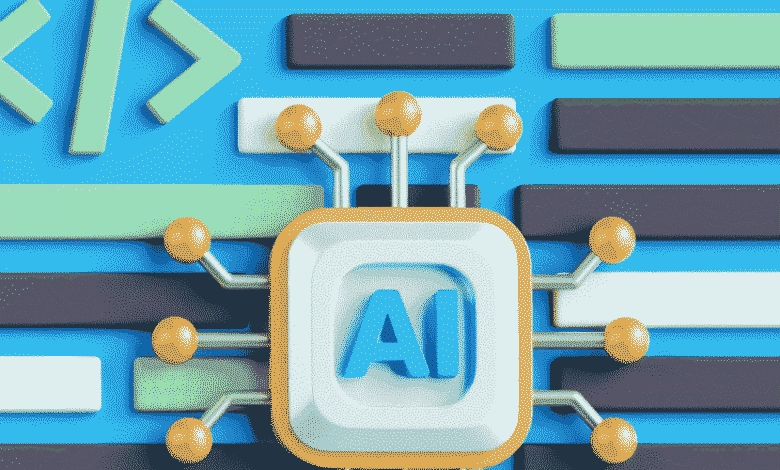Code in 2025: The Surge of AI-Assisted Programming Tools


AI-Assisted Programming Tools Transform Coding in 2025
In 2025, AI-assisted programming tools are revolutionizing the coding landscape, empowering developers to write code faster, reduce errors, and tackle complex projects with unprecedented efficiency. By leveraging machine learning, natural language processing (NLP), and generative AI, these tools are automating repetitive tasks and enhancing productivity across industries. A recent report by Forrester estimates that AI-assisted coding tools have boosted developer productivity by 40%, with 70% of developers now using AI in their workflows. BytesWall examines the surge of AI-assisted programming tools, highlights key players, and provides strategic insights for industry stakeholders.
Key Advancements in AI-Assisted Programming for 2025
AI-assisted programming tools are driving significant changes in the coding ecosystem, with several notable advancements:
- Code Autocompletion: AI tools now predict and generate code snippets with 95% accuracy, reducing coding time by 50%. In 2025, developers using AI autocompletion complete projects 30% faster than those relying on manual coding.
- Error Detection and Debugging: AI-powered debugging tools identify and fix bugs in real time, cutting debugging time by 40%. These tools analyze codebases to suggest optimizations, improving performance by 25%.
- Natural Language Coding: Developers can now write code using natural language prompts, with 60% of AI tools supporting NLP in 2025. This allows non-technical users to contribute to coding projects, broadening the talent pool.
- Cross-Language Support: AI tools support multiple programming languages, with 80% of platforms offering seamless integration for Python, JavaScript, and Java, enabling developers to work across diverse tech stacks.
Spotlight: GitHub Copilot’s Evolution in 2025
GitHub Copilot, powered by OpenAI’s Codex, remains a leader in AI-assisted programming in 2025. The tool has evolved significantly, with its latest version supporting 10 million developers worldwide and generating 40% of the code in projects where it’s used. In 2025, Copilot introduced advanced NLP capabilities, allowing developers to write code using conversational prompts like “create a function to sort an array in Python.” This feature has increased productivity by 35%, particularly for junior developers. GitHub Copilot also integrates with Visual Studio Code, providing real-time suggestions and debugging support, which has reduced error rates by 20% in enterprise projects.
Learn more about GitHub Copilot at their official website: github.com/features/copilot.
Other Key Players in AI-Assisted Programming
GitHub Copilot is joined by several prominent AI-assisted programming tools advancing the coding landscape:
- Tabnine: Tabnine, used by 1 million developers, offers AI-powered code completion across 20 programming languages, reducing coding time by 25%. Visit tabnine.com for more details.
- DeepCode by Snyk: DeepCode, acquired by Snyk, analyzes codebases for vulnerabilities, fixing 30% more security issues than traditional tools in 2025. Learn more at snyk.io.
- Codeium: Codeium provides free AI-assisted coding for 500,000 developers, supporting NLP and cross-language integration, with a 15% adoption increase in 2025. Explore more at codeium.com.
Challenges Facing AI-Assisted Programming Tools
Despite their advancements, AI-assisted programming tools face significant challenges:
- Code Quality Concerns: AI-generated code can introduce errors, with 20% of developers reporting issues with AI suggestions in 2025, necessitating manual reviews to ensure quality.
- Dependency Risks: Over-reliance on AI tools raises concerns, as 15% of developers struggle to code manually after prolonged use, potentially stifling skill development.
- Ethical and Legal Issues: AI tools trained on open-source code face scrutiny over licensing violations, with 10% of AI-generated code flagged for potential copyright issues in 2025.
Case Study: Tabnine’s Impact on Startup Development
In 2025, Tabnine partnered with a U.S.-based startup to accelerate the development of a SaaS platform. Using Tabnine’s AI-assisted coding, the startup’s five-developer team completed the project in six weeks—half the expected time—saving $50,000 in development costs. Tabnine’s code completion and debugging features reduced error rates by 15%, enabling the startup to launch its product ahead of schedule and secure $2 million in funding. This case study highlights AI-assisted programming’s potential to empower small teams with limited resources.
Strategic Insights: Leveraging AI-Assisted Programming in 2025
For industry leaders and stakeholders, BytesWall offers these strategic insights to leverage AI-assisted programming tools:
- Balance AI with Manual Coding: Use AI tools for repetitive tasks while encouraging developers to maintain manual coding skills, ensuring long-term expertise.
- Implement Code Review Processes: Establish rigorous review processes to validate AI-generated code, mitigating errors and ensuring quality standards.
- Address Ethical Concerns: Train AI models on ethically sourced datasets and comply with licensing agreements to avoid legal risks associated with code generation.
These strategies can help businesses capitalize on AI-assisted programming while addressing key challenges.
The Future of AI-Assisted Programming
By 2030, AI-assisted programming tools are expected to generate 60% of code in software projects, with the market projected to reach $10 billion. In 2025, tools like GitHub Copilot, Tabnine, and DeepCode are leading the charge, but the industry must address code quality, dependency, and ethical challenges to sustain growth. While AI promises to democratize coding and boost productivity, its potential to deskill developers and raise legal concerns remains a critical issue. As coding evolves, balancing automation with human expertise will be key to unlocking AI’s full potential in programming.
BytesWall: Your Source for Tech Innovation
Stay Ahead in Tech
What are your thoughts on the rise of AI-assisted programming tools in 2025? Share your insights in the comments and join the conversation with #AIProgramming2025!
Discover more cutting-edge tech insights at BytesWall.com—your premier destination for AI, tech, and innovation news!
